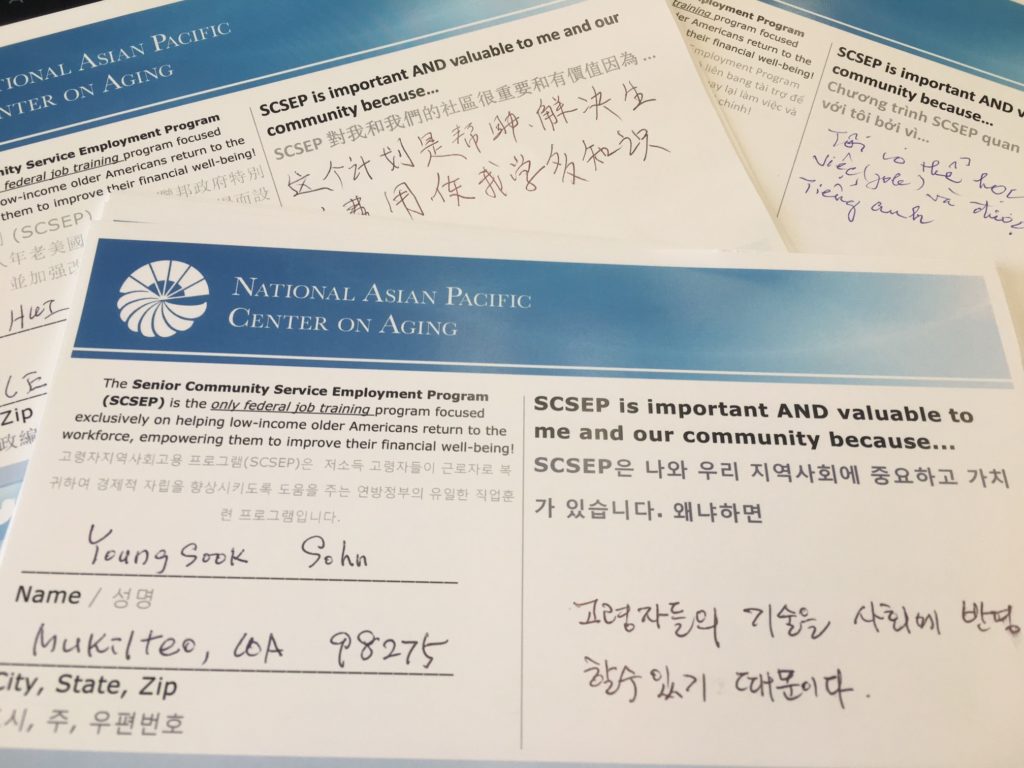FOR IMMEDIATE RELEASE: July 14, 2017
Contact: Wes Lum, (206) 624-1221
Congress Invests $300 Million in Older Adult Employment Training through SCSEP
The U.S. House Labor, Health and Human Services, Education and Related Agencies Appropriations Subcommittee approved a draft FY18 budget bill this week that funds the Senior Community Service Employment Program (SCSEP) at $300,000,000, which is a reduction of $100 million from FY17.
SCSEP is funded through Title V of the Older Americans Act and is the only federal job training program focused exclusively on helping Americans return to the workforce. The program assists low-income unemployed adults aged 55 years and older by providing job training through temporary paid work experiences that can lead to unsubsidized employment.
Today, the National Asian Pacific Center on Aging (NAPCA) submitted over 755 comments in four languages from Asian American and Pacific Islander (AAPI) older adults in seven states to Congress, telling them why SCSEP is important and valuable to our AAPI communities. The comments collected across the United States exemplify how SCSEP empowers older adults to improve their financial well-being, promotes the emotional well-being of older adults and promotes service within the community. The comment cards in English, Chinese, Vietnamese and Korean can be viewed at: www.NAPCA.org/SCSEP-success.

Since 1989, NAPCA has fostered economic self-sufficiency among AAPI older adults through SCSEP. In fiscal year 2016, NAPCA SCSEP served just under 1,000 participants through 10 project sites in seven states and partnered with over 420 nonprofit organizations that contributed more than $1.17 million of in-kind support back into the communities. In addition, approximately 668,000 hours of community service were provided by NAPCA SCSEP participants at a value of over $15 million.
NAPCA’s mission is to preserve and promote the dignity, well-being, and quality of life of Asian American and Pacific Islanders as they age.

